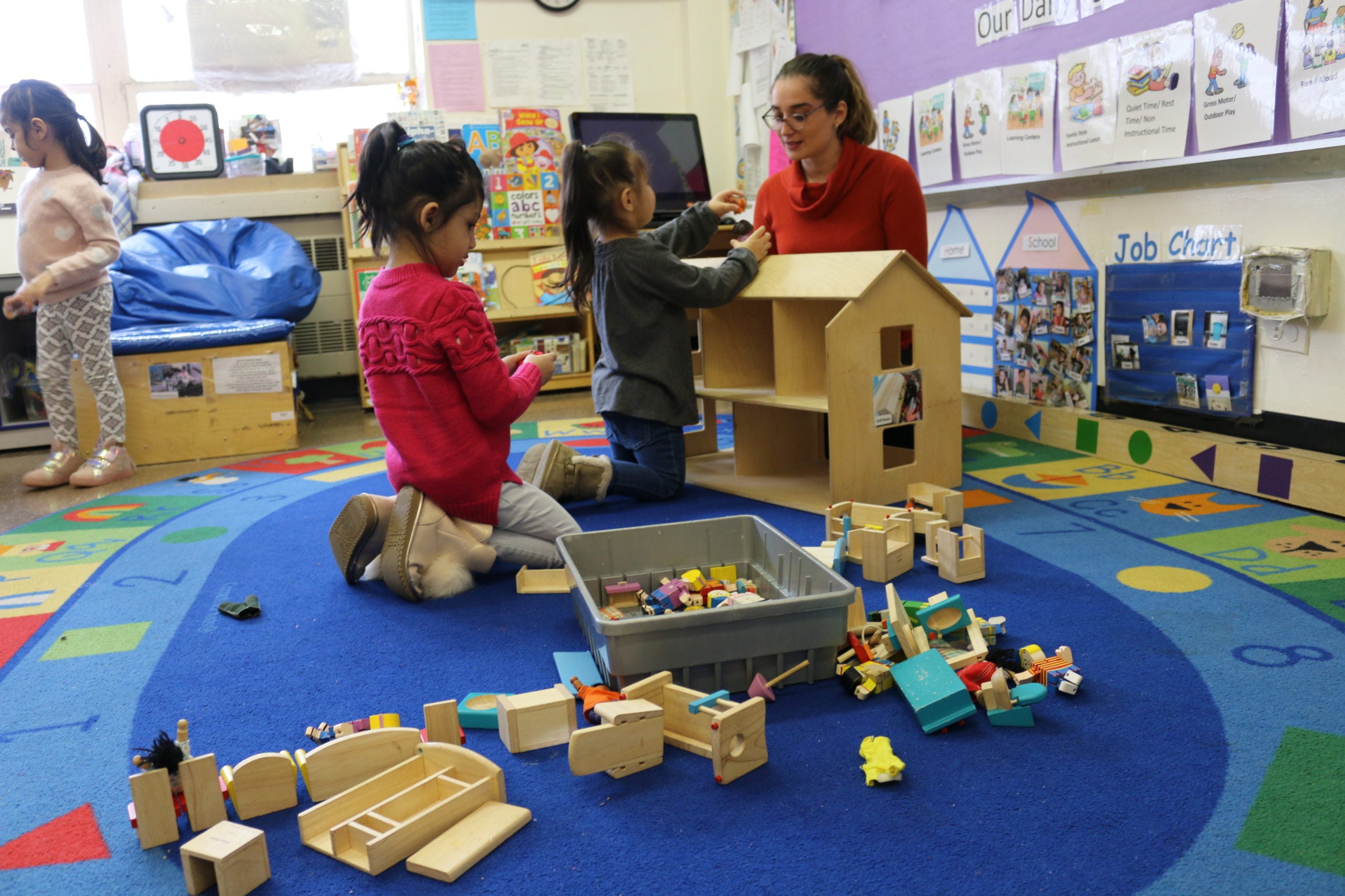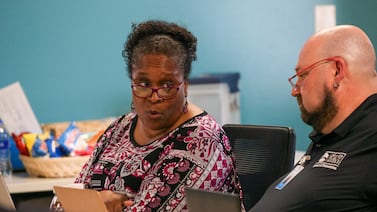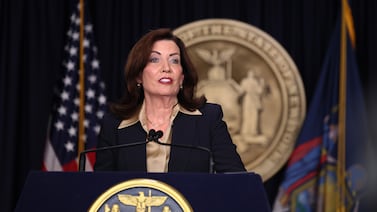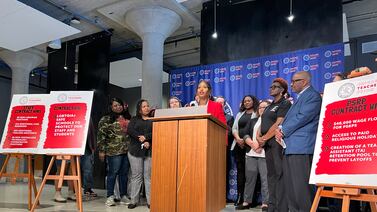Mayor Eric Adams committed Tuesday to addressing a longstanding shortage of preschool seats for students with disabilities, with plans to open 800 more of those spots for 3- and 4-year-old children by this spring.
The mayor will boost pay for preschool special education teachers, who typically earn up to $20,000 less than their general education counterparts, officials said. The city will also increase the school day in these programs by an hour and 20 minutes, matching the hours for general education preschool programs.
Adams announced the changes at a press conference in which he sharply criticized the system under former Mayor Bill de Blasio, charging that the lack of access for hundreds of students with disabilities “was just wrong” and meant that New York City’s lauded universal preschool program was never truly universal.
“Children who need it more were receiving less,” Adams said. “That is just dysfunctional at its highest level.”
Schools Chancellor David Banks said the teacher pay disparities were a result of “what happens when you don’t think it’s a priority.”
Universal prekindergarten was regarded as de Blasio’s signature achievement. But advocates criticized his administration for failing to provide seats for hundreds of children with disabilities or adequately paying teachers in those programs. At the end of last school year, about 800 preschool-aged children with disabilities were still awaiting seats, an education department official said at a City Council meeting in September.
For students with disabilities who did get seats, disparities remained. An analysis of the 2019-20 school year found that Black and Asian American preschoolers were less likely to be identified for special education services when compared with their white peers. Black and Latino children who were identified for services were more likely to be placed in settings exclusively for students with disabilities rather than classrooms integrated with students of mixed abilities.
The new plan is expected to help providers open more classes with a mix of students with disabilities and those in general education, officials said. The process of adding 400 new seats is already underway, said Deputy Chancellor Kara Ahmed, who oversees early childhood education. Officials did not say exactly when these seats will open.
The department approved funding increases for 65 community-based organizations that provide special education programs for the city’s youngest learners. The additional money will allow those programs to open new seats, extend class hours for students with disabilities, and boost wages for teachers.
The salary bumps will mean increasing salaries from the current range of $50,000-$58,000 up to a range of $68,000-$70,000, Ahmed told reporters. And doing so will allow existing programs to keep teachers and attract new ones, Ahmed said.
The city has also committed to opening another 400 new seats by sometime this spring.
“We plan to hold the administration accountable for delivering on that promise,” said Randi Levine, policy director for Advocates for Children, a nonprofit organization that has for years pushed for more such seats, during Tuesday’s press conference. “The city has a legal obligation and a moral obligation to do so.”
The plan will cost $130 million during this fiscal year and the next one, and is being paid for using federal relief dollars, a department spokesperson said. The spokesperson declined to say how the city plans to cover funding for those seats once the temporary dollars run out in 2024. That’s a larger question for many education department programs funded by relief dollars, including thousands of new 3K seats the city has opened over the past two school years.
Gregory Brender, policy director for the Day Care Council, said the plan includes positive steps, but noted that his organization wants the Adams administration to raise wages for all early childhood educators working for community-based programs. As of October 2020, these teachers are making the same amount as new public school teachers, even with 20 years of experience, Brender said.
In an interview, Levine noted that under the city’s plan, preschool special education teachers will now be paid as much as a new teacher who works for the education department.
“But every step helps,” she said.
Reema Amin is a reporter covering New York City schools with a focus on state policy and English language learners. Contact Reema at ramin@chalkbeat.org.







